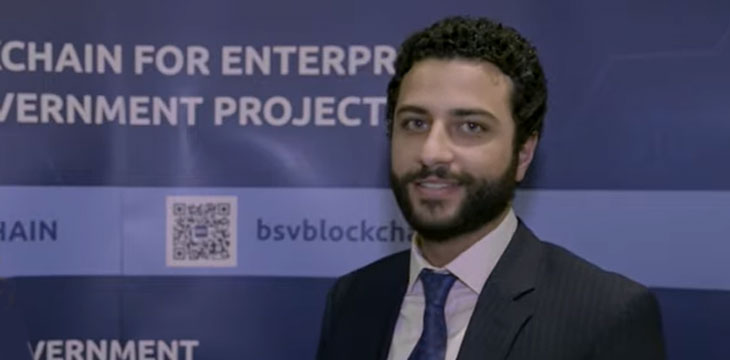|
Getting your Trinity Audio player ready...
|
By the time Jad Wahab discovered Bitcoin SV, he had already tried out several other blockchain networks, including Ethereum and the ill-fated scaling solution introduced by the BTC faction, Lightning Network, but none of them proved to him they could support global adoption in the long run. In a recent interview with CoinGeek Backstage, he talked about discovering Bitcoin SV and how it integrates into IPv6 and the future of the Internet.
With his background being in computer engineering, Wahab wanted to get more involved in Bitcoin and pursued a master’s in information security and applied cryptography. He then tried out a number of blockchain networks and even some private blockchains before eventually discovering BSV blockchain.
“I finally found my way to Bitcoin SV and the BSV blockchain’s scaling, and everything on there. It makes sense to only have one blockchain that can do it all,” Wahab told Becky Liggero in an interview at the sidelines of LEAP 2022 in Riyadh, Saudi Arabia.
Wahab currently serves as the director of engineering at the BSV blockchain’s association, joining the organization this year. He previously held various roles at enterprise-grade blockchain solutions provider nChain, including the tech lead and software engineer.
At LEAP 2022, he was on a panel that discussed the Internet Protocol Version 6 (IPv6) and what it means for the future of the Internet. IPv6 has become an increasingly popular topic in the Bitcoin world, with Dr. Craig Wright recently delivering a speech on how combining IPv6 and Bitcoin SV can create “an on-demand internet of value, one that can serve people on any income and anywhere in the world while protecting their privacy.”
As Dr. Craig Wright explained on CoinGeek’s The Bitcoin Bridge, he had included IPv6 as part of the protocol when he was designing Bitcoin. He, however, was detracted from this integration by naysayers who believed it would present a security concern.
Wahab told CoinGeek Backstage that IPv6 is a big leap from IPv4, allowing greater interconnectivity between any and every device connected to the Internet. IPv6 is also much more secure and allows users to send very large data packets on the Internet.
“Where BSV blockchain comes in is that you can add payments to the transfer of data,” he pointed out.
Integrating BSV also beefs up the network’s security, making it that much harder to attack. “If you add a payments layer, the attacker would easily exhaust all their money trying to attack the system.”
Wahab also commended the quick uptake of digital currencies and blockchain technology in the Middle Eastern region. He believes that the people are seeking out alternatives to some of the systems that they have been using for years, and with some Middle Eastern nations like Lebanon going through a currency crisis, Bitcoin will only keep getting more popular.
Watch: LEAP 2022 Saudi Arabia highlights with Becky Liggero

 03-01-2026
03-01-2026 




